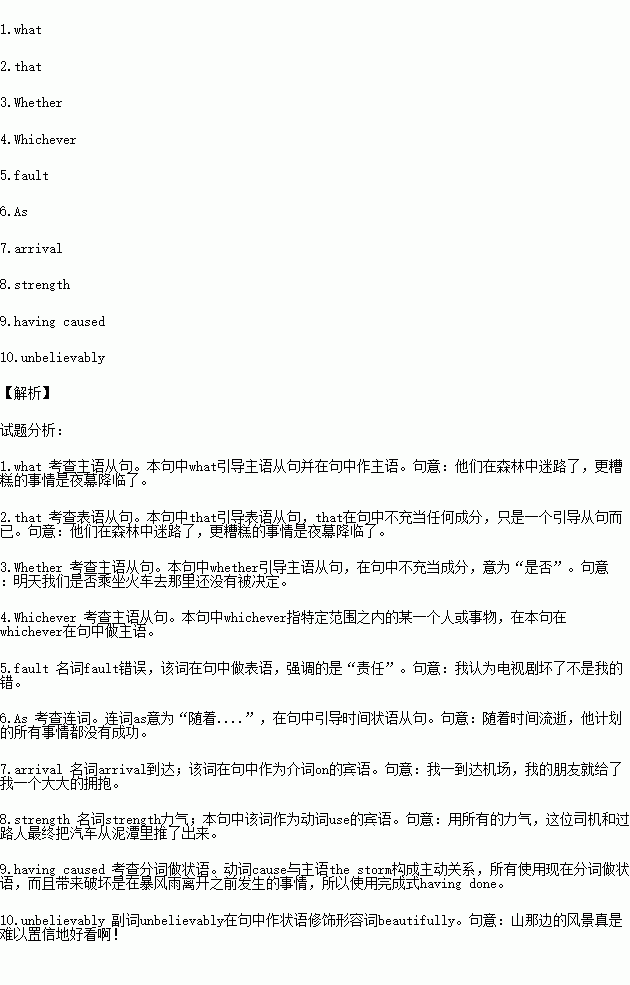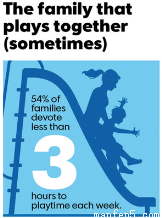题目内容
阅读下面材料,在空白处填入适当的内容(1个单词)或括号内单词的正确形式。
They lost their way in the forest and __1.____ made matters worse was ____2._______ night began to fall.
3. ____________we will go there tomorrow by train hasn't been decided yet.
4.____________ of you comes in first will be given a prize.
5.I don’t think it’s my ____________ that the TV blew up. I just turned it on. That’s all.
6.___________ days went by, he didn’t succeed in anything he had planned.
7. On my __________(arrive) at the airport, my friend gave me a big hug.
8. Using all their ___________(strong), the driver and the passers-by pushed the car out of the mud in the end.
9.The storm left, ____________ (cause) a lot of damage to this area.
10. How ____________ (believe) beautiful the scenery beyond the mountain is!


